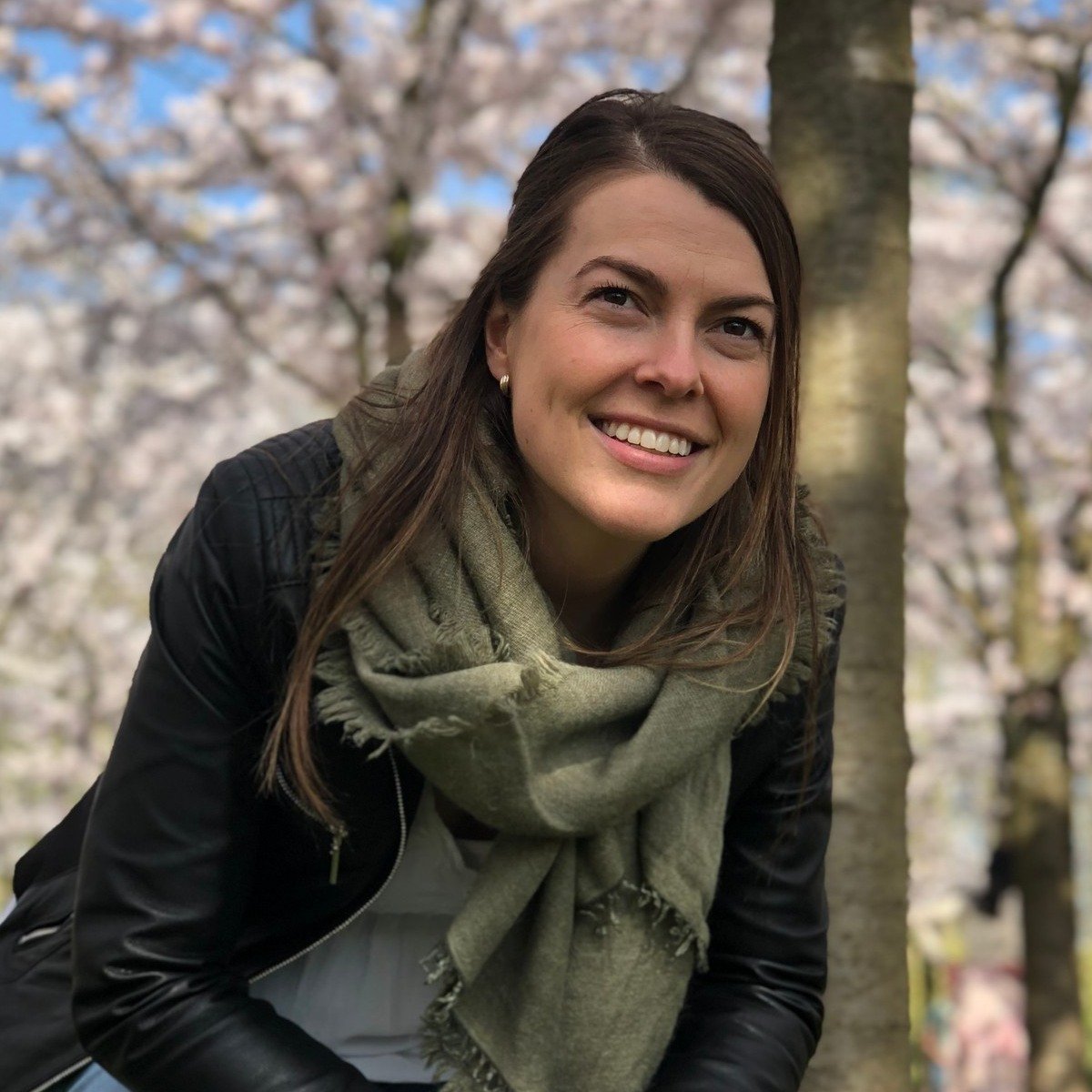
Joy, confidence
and serenity
for those who've already tried it all
Is this you ?
Do you struggle to feel like you truly belong?
Does your mood ever shift dramatically — sometimes within moments?
Do your relationships often feel complicated, or rarely fulfilling?
Do you experience your emotions so intensely that it can become painful?
Do you sometimes act impulsively — in your relationships, around food, or with money?
Well… I know how hard it can be.
And yet…
You’ve already started therapy, but haven’t noticed any real improvement in how you feel.
You do your best to maintain a healthy lifestyle, yet it never seems to be enough.
You follow personal growth, positive psychology, or life coaching accounts on social media, but they don’t really help when things get tough.
You practice — or have practiced — meditation, yoga, sophrology, hypnosis, EFT, and many other techniques, yet nothing has brought the deep and lasting change you long for.
Even with all your willpower, all your effort,
and all the energy you’ve invested,
you still don’t feel any better?
And the worst part of it is…
You already know about Polyvagal Theory — the revolution everyone in the coaching world is talking about, said to be the key to resolving every kind of struggle — emotional, physical, or relational?
You’ve spent hundreds of euros on a nervous system regulation program where you did learn a lot, but deep down, nothing really changed?
You’ve even invested in EMDR, IFS, TRE, or Somatic Experiencing sessions to be guided through the process, yet somehow, you still feel the same pain, face the same challenges, and live with the same inner instability?
In short, at this point, there’s really only one question left in your mind:
“What’s wrong with me?”
“Why can everyone else do it — except me?”
(Well… technically, that’s two questions.)
Goodness !
There’s nothing wrong with you.
The truth is, nervous system regulation only addresses part of the problem.
Yes — if you experience emotional instability, chaotic moods, anxiety, relationship challenges, or impulsivity, it’s very likely that your nervous system is indeed dysregulated. That’s what many leading experts in neuroscience and trauma agree on today — Stephen Porges, Bessel van der Kolk, Daniel Siegel, Gabor Maté, Jan Winhall, Peter Levine, Larry Heller, Deb Dana… to name just a few.
However, none of these experts reduce the healing process to nervous system regulation alone. Today, the personal development and coaching world has embraced this concept — with the benefit of spreading it widely and helping hundreds of thousands of people take responsibility for their health and discover innovative, non-pathologizing approaches… but also with the drawback of reinforcing the belief that nervous system regulation is a cure-all for absolutely everything — from Gaston’s gingivitis to Janine’s business struggles.
While the concept of nervous system regulation absolutely deserves our full attention, it isn’t enough to solve all our problems.
If we’re aiming for deep and lasting transformation, nervous system regulation must be integrated into a more advanced approach — one informed by an understanding of the bio-psychological adaptive strategies that accompany and sustain dysregulation.
Regulating your nervous system without addressing the strategies that drive you into dysregulation is a bit like constantly draining your bathwater because it feels too hot, without ever turning off the hot tap. Sure, you can stabilize the temperature — but at what cost? And is it sustainable over time?
The good news is, there are ways forward.
Just imagine…
Feeling good and at home within yourself, in a space where who you are and what you bring are genuinely seen, appreciated, and honored.
Restoring a more stable and balanced mood, allowing you to stay grounded in confidence — in yourself and in your projects.
Welcoming with gentleness the uncomfortable emotions, like fear or sadness, that naturally arise in your life, while feeling much more joy and serenity in your everyday experience.
Taking care of yourself — your body, your resources, your finances — so you can invest your energy where you truly want to, and finally bring your projects to life.
Nurturing authentic, meaningful relationships in which everyone’s needs are respected, and conversations are stimulating, nourishing, and deeply enriching.
All of this is actually possible.
How ?
By choosing an approach that goes beyond nervous system regulation — one that brings specific expertise in resolving the psycho-physiological manifestations of complex trauma (remember? emotional instability, chaotic moods, relational difficulties, impulsivity…).
L’Accompagnement Individuel
A privileged, one-on-one journey where you’ll experience:
✓ 75-minute sessions every week or every other week — in person in Paris, or online via Zoom.
✓ An integrative approach informed by Polyvagal Theory, Somatic Experiencing, and NeuroAffective Relational Model — with a refined understanding of nervous system regulation and deep sensitivity to neurodivergent profiles.
✓ optional — the Rest and Restore Protocol or the Safe and Sound Protocol, developed by Dr. Stephen Porges himself, to directly support your physiology and regulate your autonomic nervous system in a profound and lasting way — rather than just stabilizing it superficially for short periods.
✓ Humor, gentleness, and deep respect for your uniqueness and complexity.
Their words.
Ruth Olivares
Zach Carlsen
By the way…
You might be wondering who I am — and what my background looks like.
Well, I’ve spent the past fifteen years studying human beings and the dynamics that shape them, ten years training in various approaches to health and well-being, thirty-five years loving Bleu d’Auvergne — and probably just as many years despising bell peppers.
I chose to train in trauma resolution and somatic work outside the French university system, recognizing in it a certain institutional violence — a structure that, in itself, perpetuates trauma.
I’m therefore neither a psychologist nor a physician.
That said, I fully and unequivocally acknowledge that some situations absolutely require medical support.
Ideally, I believe in creating synergy between medical care and trauma resolution work — informed by a deep, nuanced understanding of trauma mechanisms, which can only be truly grasped when we consider trauma in all its dimensions, within the system in which it occurs.
I’ve worked at the Institut du PsychoTrauma Paris, and now at the Cabinet Médical de l’Étoile, where I collaborate with psychiatrists who refer certain clients to me to support them in resolving and integrating their traumatic experiences — and in regulating their nervous systems.
These individuals now enjoy a significantly improved and lasting quality of life: a more stable mood, emotions they can navigate with ease, better impulse control, deeper relationships, and a renewed sense of joy and purpose.
During my training, I first explored cognitive-behavioral therapies, but quickly realized their limits. When trauma is present, the biophysiological mechanisms that drive cognition and behavior are altered — and true change only happens when we work with both the body and the nervous system.
I then trained in Somatic Experiencing, a gentle and respectful approach inspired by observing animals in the wild. Why don’t they develop post-traumatic stress symptoms, even though they constantly face life-threatening danger? By answering that question, Dr. Peter Levine created the Somatic Experiencing approach — a natural and effective path toward trauma resolution.
Alongside this, I trained in life coaching, complex trauma, and attachment-related issues, through the NeuroAffective Relational Model — NARM — developed by Dr Larry Heller.
I also integrate non-invasive neurotechnologies that directly support autonomic and central nervous system regulation — including the Rest and Restore Protocol and the Safe and Sound Protocol, both developed by Dr. Stephen Porges.
Building on this expertise — and alongside my professional practice — I’m currently pursuing an Inter-University Diploma in Neurodevelopmental Disorders in Adults at La Sorbonne University.








